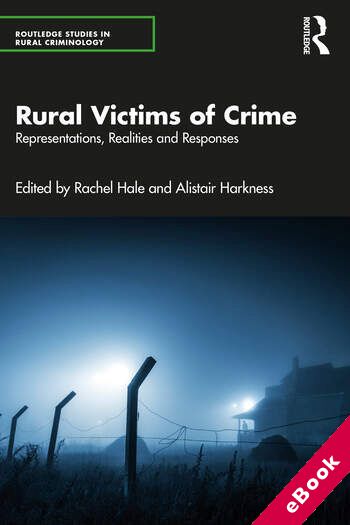
The device(s) you use to access the eBook content must be authorized with an Adobe ID before you download the product otherwise it will fail to register correctly.
For further information see https://www.wildy.com/ebook-formats
Once the order is confirmed an automated e-mail will be sent to you to allow you to download the eBook.
All eBooks are supplied firm sale and cannot be returned. If you believe there is a fault with your eBook then contact us on ebooks@wildy.com and we will help in resolving the issue. This does not affect your statutory rights.
Rural Victims of Crime offers a pioneering sustained assessment of ‘the rural victim’. It does so by examining and analysing the conceptual constructs of a victim and challenging the urban bias of victimisation and victimology in criminological study. Indeed, far too much criminological scholarship is based on the false assumption that rural areas are relatively crime free – and thus free, too, of victims.
Providing international perspectives, chapters in this edited collection focus centrally on notions of place and space, and constructions of rural victims in a variety of contexts, exploring the impact that geographic location has on the type and prevalence of victimisation. The concept of victimisation is often considered in terms of interpersonal relationships between humans, neglecting the potent impact of victimisation of non-humans and the natural and built environment. Rural Victims of Crime discusses existing notions of victimology in relation to non-human subjects, broadening conceptualisations of the victim and associated impacts resulting from victimisation. Structured in three parts, Rural Victims of Crime conceptualises the rural victim, enhances understanding of the realities of rural victimisation and considers both formal and informal responses to rural victimisation. Chapters are accompanied by practical, contemporary case studies to connect theory with praxis.
This book is an essential and valuable resource for academics, students and practitioners alike in the fields of criminology, criminal justice, rural studies, victimology, geography, sociology and spatiality.